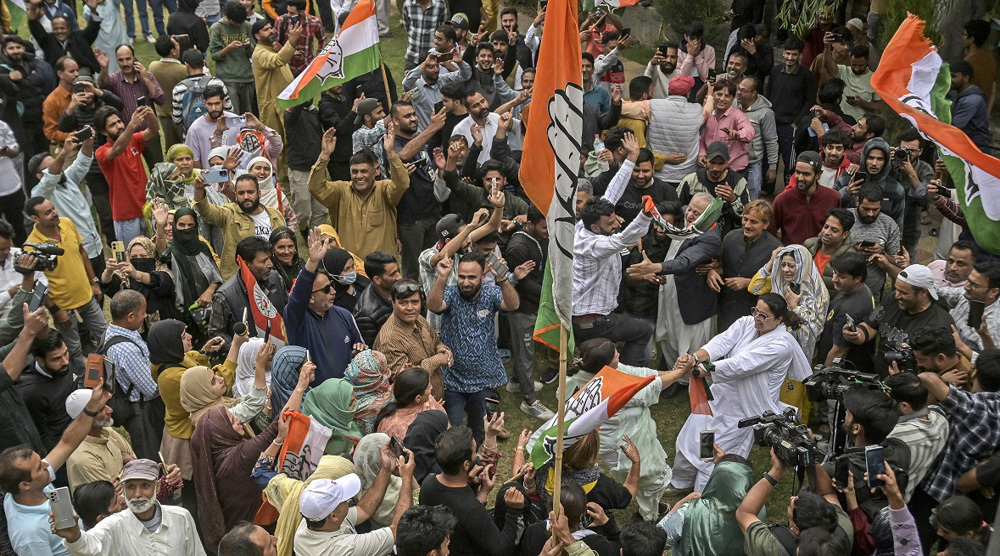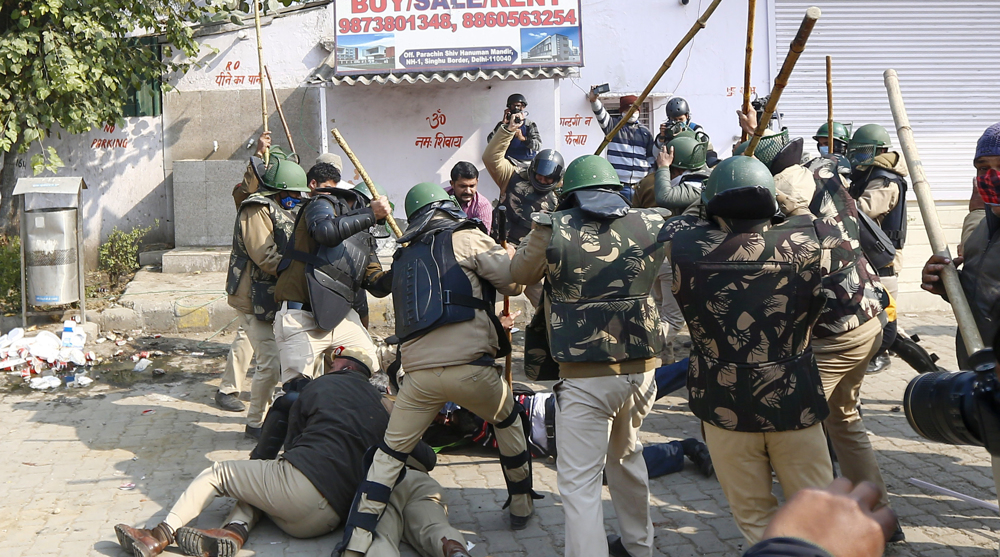Tens of thousands of farmers protest in northern India against new laws
Tens of thousands of farmers have taken to the streets in India’s northern state of Punjab in a show of strength against the government’s agricultural reforms that have sparked massive protest across the country over the past months.
Over 100,000 people of different ages and genders gathered at a grain market in the town of Barnala on Sunday, to voice their opposition to the newly-passed controversial laws.
The protesters were riding in on buses, tractors, trailers and cars.
Local police estimated the crowd of protesters between 120,000 and 130,000, marking one of the largest rallies held in the country.
The development comes as thousands of farmers, from several Indian states, have already been encamped on the outskirts of the nation’s capital, New Delhi, for nearly three months, blocking highways to demand that the right-wing government repeal the farm laws passed in September – which they insist threaten their livelihoods.
At Sunday’s massive rally, union leaders called on supporters to amass outside the capital, New Delhi, on February 27 and outlined plans to mobilize farmers and farm workers from across Punjab to the protest site.
"We came here to make Punjab's farmers aware of the movement in Delhi. We came to tell them what's happening there and what will happen next," prominent farmer leader Joginder Ugrahan said.
A farmer who attended the rally also said our objective is that “the black laws” enacted by Prime Minister Narendra Modi’s government are repealed.
An unnamed senior official from the ruling Bharatiya Janata Party (BJP) in New Delhi has blamed opposition parties for attempting to prolong the agitation but said the government was open for further talks.
Modi’s government introduced a series of agricultural laws in September 2020, to the discontent of farmers, who say the new laws will hurt their livelihoods.
Clashes between protesters, police, and groups of anti-farmers have taken place on multiple occasions since then.
The farmers believe the proposed amendments will create an opportunity for large private companies to enter and exploit the entire agriculture sector.
Farmers’ unions say the laws will affect nearly 70 percent of the 1.3-billion population who are drawing their livelihood from agriculture. They say they would not budge “until the laws are repealed.”
The government insists it will not bow to the protesters’ demands.
Isolated farmers and their supporters have occupied roads and toll booths in a number of states with no reported trouble.
Since November, tens of thousands of farmers have been camping on the outskirts of the capital, calling for a repeal of the reforms.
When a similar protest turned violent on January 26, unions vowed any fresh action would be peaceful.
Outside of the capital, major police deployments were ordered in the key farm states of Uttar Pradesh, Haryana, and Punjab.
Modi has called for dialog, but several rounds of negotiation have failed to break the standoff.
Dec. 3: ‘Axis of Resistance’ operations against Israeli occupation
Chicago Univ. at loggerheads with students, faculty for backtracking on Gaza program
VIDEO | Biden exits with ‘massive surge’ of arms for Ukraine
Iran warns of ‘NPT withdrawal’ if snapback activated
Over 60,000 Palestinians in northern Gaza on verge of death as Israeli siege rages on
Iran asserts will continue to support Syria until terrorists vanquished
Role of oil terminals in Iran’s plan to become energy hub
VIDEO | Jordanian committee organizes speech festival in solidarity with Gaza, Lebanon













 This makes it easy to access the Press TV website
This makes it easy to access the Press TV website